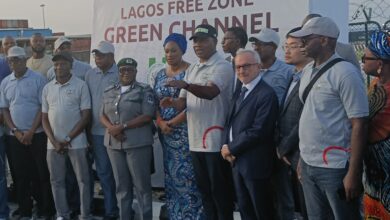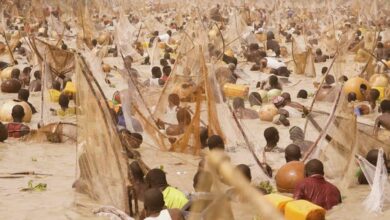How Climate Change, Water Crisis, Impact, Impoverish Women, Girls Globally
...As 60 Million Nigerians Lack Potable Water, 80 Million Without Quality Sanitation Facilities

By Edu Abade
Women have been identified as the greatest sufferers of the impacts of climate change and lack of access to water due to their different needs, gender discrimination and disparity, as well as the unequal relationship with water like their male counterparts.
In most homes, women are the primary users and managers of water for reproductive activities including cooking, cleaning, subsistence agriculture, health and sanitation, while men primarily use water resources for income-generating activities such as large-scale farming, agriculture or livestock.
But due to the impacts of climate change and lack of clean water, women have been impoverished as the poor women resort to rivers, lakes, leaking water from pipes and public boreholes to access water more often than men.
Also, the time women and girls spend on collecting water from these sundry sources often prevents them from gaining productive education and earning a formal wage, thereby entrenching them in poverty, just as women own less than 2 percent of land globally and their potential for decision-making over water resources remains low.
Executive Director of Child Health Organization (CHO), Vicky Urenna Onyekuru, made the assertions at a virtual training on Climate Change and Water organized by the Citizens Free Service Forum (CFSF) in collaboration with the Public Service International (PSI) for journalists and civil society groups on Tuesday, September 17, 2024.
Describing women and girls’ experience in sourcing for water as ‘feminization of poverty,’ she maintained that poverty and its feminization impact water use, adding that climate change negatively impacts availability of water through changes in temperature and precipitation.
During the Webinar moderated by Elvira Jordan of Environmental Defenders Network (EDEN), she said: “Increased temperature and low levels of precipitation have negative effects on water and decrease its availability. This is how climate change and gender inequality intersect with water availability.
“In doing so, climate adaptation efforts in the water sector will be better able to incorporate activities and goals that take gender issues into account and ensure activities do not affect inequalities.”
She urged policy makers and governments of African countries to integrate gender perspectives into mitigation and adaptation initiatives, insisting that investing in women as part of the climate change response leads to environmental gains and greater returns across the SDGs and broader development objectives.
“Decision makers and development partners at all levels need to accommodate women in the planning, financing and implementation of climate responses, including adaptation and mitigation, food security and agriculture, health, water and sanitation, forestry, disaster risk reduction, energy and technologies and infrastructure,” she stated.
She also advocated that such policies should ensure that adaptive actions build up the asset base of women, plan mitigation initiatives that promote poverty reduction and the empowerment of women and integrate principles of gender equality and women empowerment into financing for climate change.
Also in her presentation on Climate Change and the Water Sector, Executive Director, Tubali Development Initiative (TDI), Hauwa Mustafa, argued that nothing has drastically departed from the initial understanding that Climate Change, which is largely induced by the fossil fuel industry and human activities, has become a global existential threat that requires collective global action.
She maintained that the solution to the climate crisis lies with mankind, adding that it is a development issue, whose solution should address poverty, inequality and environmental distress.
“It is important for the Global South and especially Africans to understand that climate change denial is not based on any scientific theory, but more on the need to deny responsibility and continue to make profits a priority over people, especially by the Global North.
“We also need to understand how these processes are shaped by a system that sustains the business of fossil fuel at the expense of a dying planet. What this means is that we need to understand the political economy and social culture of climate change as well as look behind the figures, the stories and events,” she said.
Insisting that the extent to which climate change impacts on the water availability and use makes it an existential threat, she pointed out that when climate change worsens either through increased precipitation or excessive heat, surface water increases or dries up accordingly.
“Excess rainwater could therefore damage farmlands and property when its amount is beyond what the normal surface level can accommodate. We see how excess rainfall either damages crops or early seizure of rainfall leads to low harvest yield yearly. It happens to onion farmers in Sokoto, Zamfara and Kano states.











